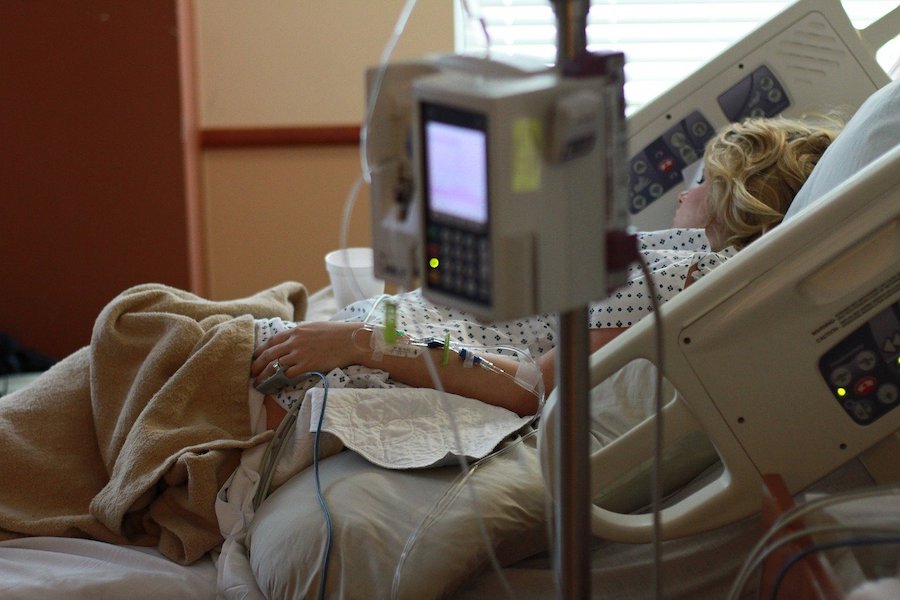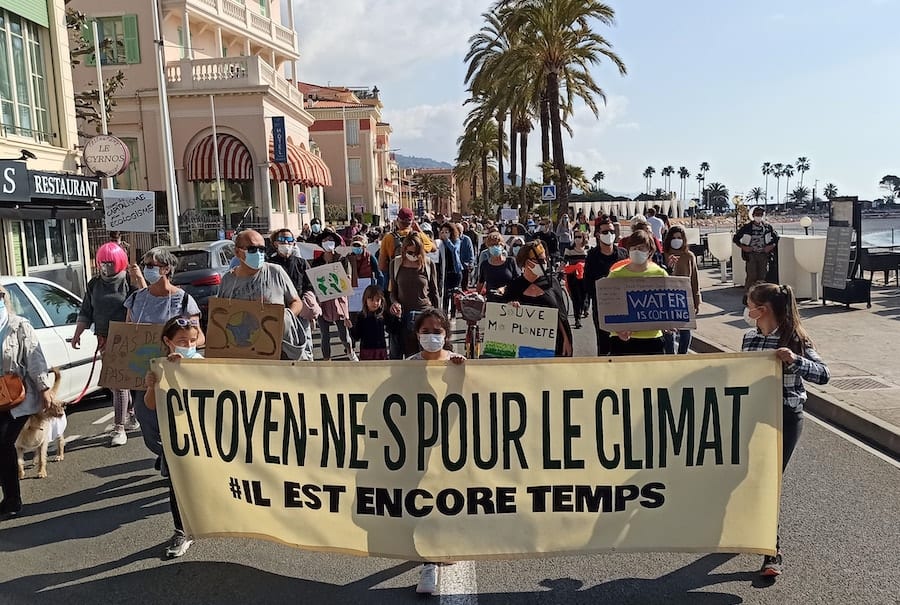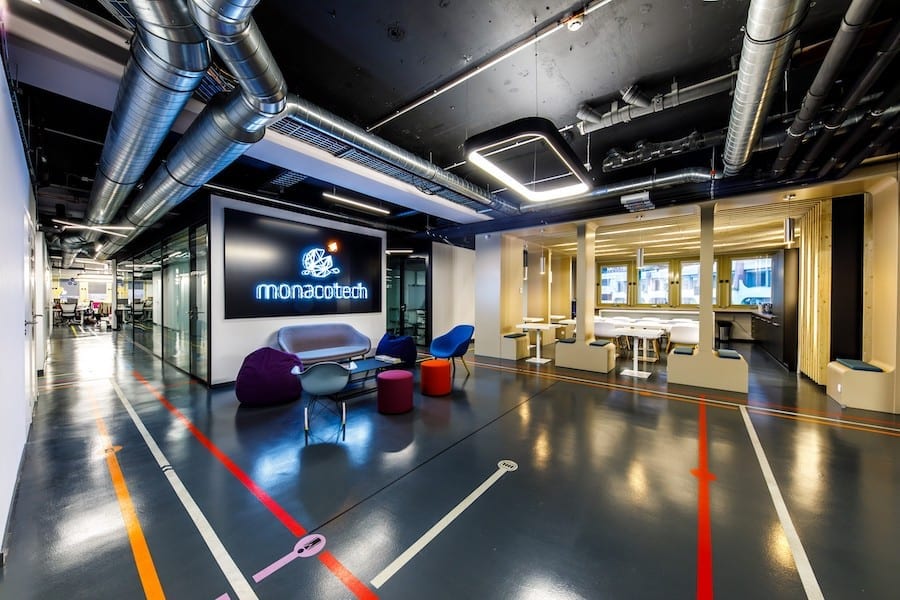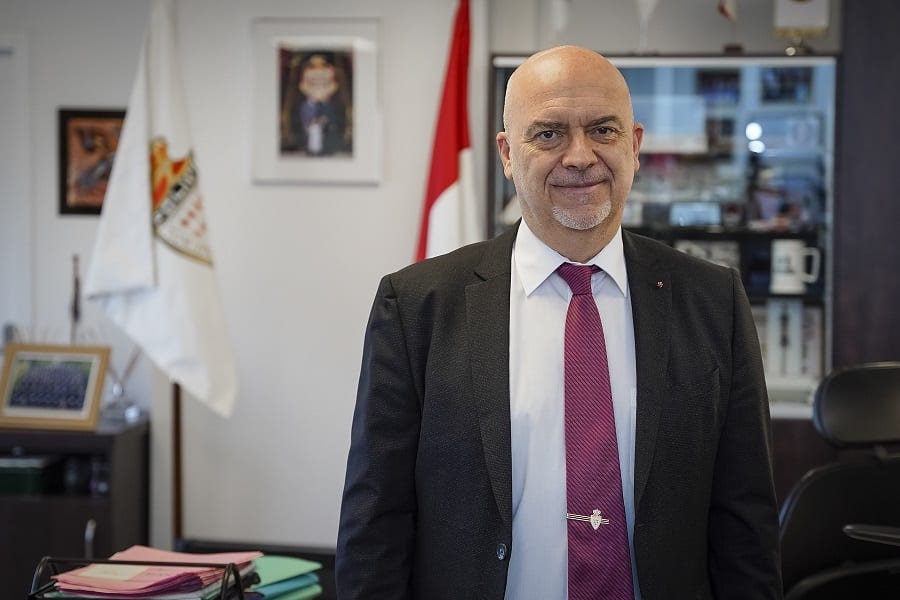IMSEE has provided a clear snapshot of the health and mortality impact of Covid-19 in 2020 on the Principality in a comprehensive new report.
In June 2020, then Minister of State Serge Telle requested that Monaco’s statistics body IMSEE produce a report for the government documenting the consequences of the health crisis in various areas.
On Tuesday, IMSEE released its report, measuring the impact of Covid primarily in the spring and taking into consideration the pre-lockdown period, the lockdown period and the period of partial resumption of activity. It also compared monthly figures to past years, where applicable.
The report lays out the consequences of the pandemic according to seven main themes: health and mortality, the economy, employment, transport, the environment, early childhood and education, and security.
While previous IMSEE reports have stated the pandemic’s impact on the economy and employment in the Principality, this report highlights for the first time the full health impact of the virus.
Hospitalisations
According to the report, the number of hospitalisations first peaked between 26th March and 2nd April 2020 with 10 to 11 hospitalisations, before falling and remaining at close to zero between 6th May and 29th August. The number of people hospitalised in Monaco began to rise again in September with four to six patients, however the number of cases in intensive care never exceeded two over this period.
As of 6th October 2020, the cumulative number of cases had reached 224, or 0.6% of the population. 15.6% of cases required hospitalisation, 35 cases in total, including eight in intensive care.
Women versus men
More than six in 10 positive cases of Covid-19 were men. Over 30% were aged 60 and over, and 40% were younger than 40-years-old.
Men were slightly more likely to be hospitalised than women, with 16.4% compared to 14.3%. Men and women were, however, equally likely to need resuscitation, which was necessary in 3.6% of cases.
Age factor
The likelihood of hospitalisation increased with age. Only 2% of cases under the age of 30 were hospitalised, compared to a third of patients aged between 70 and 79 years, and more than three quarters after 80 years of age. Patients aged between 60 and 69 years had a two in 10 chance of requiring hospitalisation.
Recovery time
The average healing time was 18.9 days overall, 17.3 days for cases outside hospitalisation and 17.1 days for cases followed at home.
The average length of hospitalisation was 13.5 days in general, and 8.8 days for patients without a stay in intensive care.
Death rates
Based on data from the Civil Registry of Monaco City Hall, monthly mortality rates were also examined between 2011 and 2020. It is important to note, however, that the pandemic’s grip on the Principality, including the number of cases, hospitalisations and deaths, increased exponentially at the start of 2021 and have not been considered in this analysis.
The report showed that the total number of deaths recorded in Monaco from January to September 2020 was 387, almost the same level than the average observed between 2011 and 2019 with 390.
Regarding Monegasque citizens specifically, there were 199 deaths of residents in Monaco between January and September 2020 compared to 175 on average between 2011 and 2019.
The month of March 2020 saw a surplus of around 10 deaths compared to the 2011 to 2020 average, and the people who died were on average 2.3 years older than normal at 86.8 years.
However, IMSEE concluded in its report that, “although the data shows an excess of deaths in March 2020 compared to the average, the elements available do not allow it to be attributed directly to Covid-19.”
IMSEE notes that the results should be taken with caution given the small size of the numbers studied. Additionally, the figures take into account only the deaths of residents in Monaco, not of those outside of the Principality.
Event industry
The report also analysed staged events in the Principality with data collected from the Tourism and Congresses Department.
Due to the strict health measures that were put in place, at the beginning of September 2020, 42 events had been cancelled, 30 were postponed to a later date, and eight were maintained between September and December.
Following the cancellation of events, it is estimated that almost 260,000 participants would have potentially been present, including 200,000 during the Monaco Grand Prix. Day visitors constitute approximately 60% of the participants in this event.
To read the full report, click here.
In conclusion
In its summary, IMSEE noted that the epidemic has still not been contained and its consequences continue to be felt both economically and socially, in the Principality and at the global level, with new measures taken by governments every day to protect populations.
The statistics body will now publish a monthly Covid-19 Impact Observatory report presenting the most recent health indicators and a review of demographic data including birth rates and mortality.
First report on health impact of Covid





